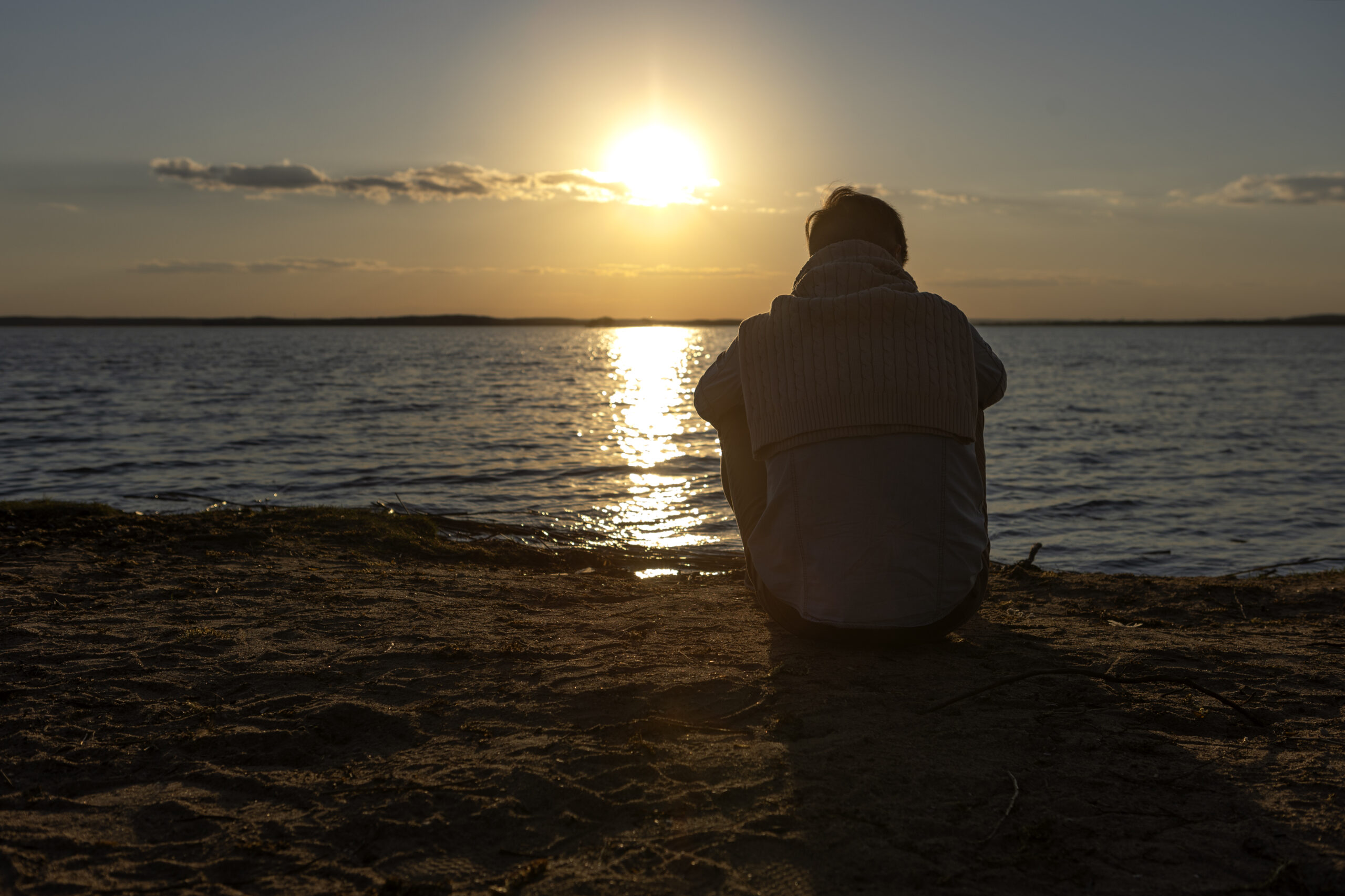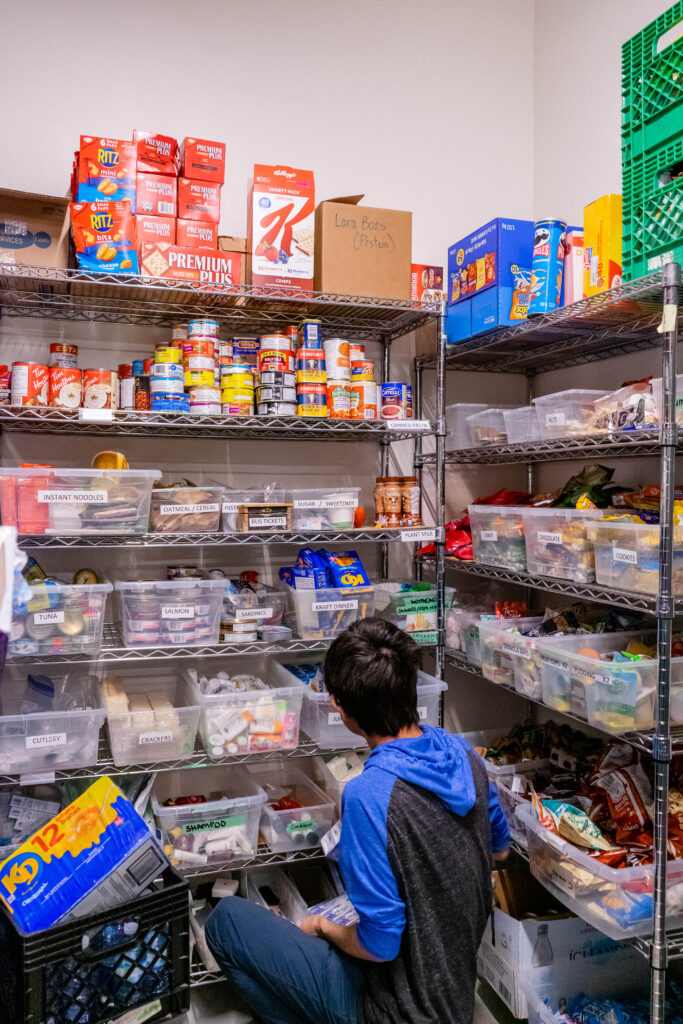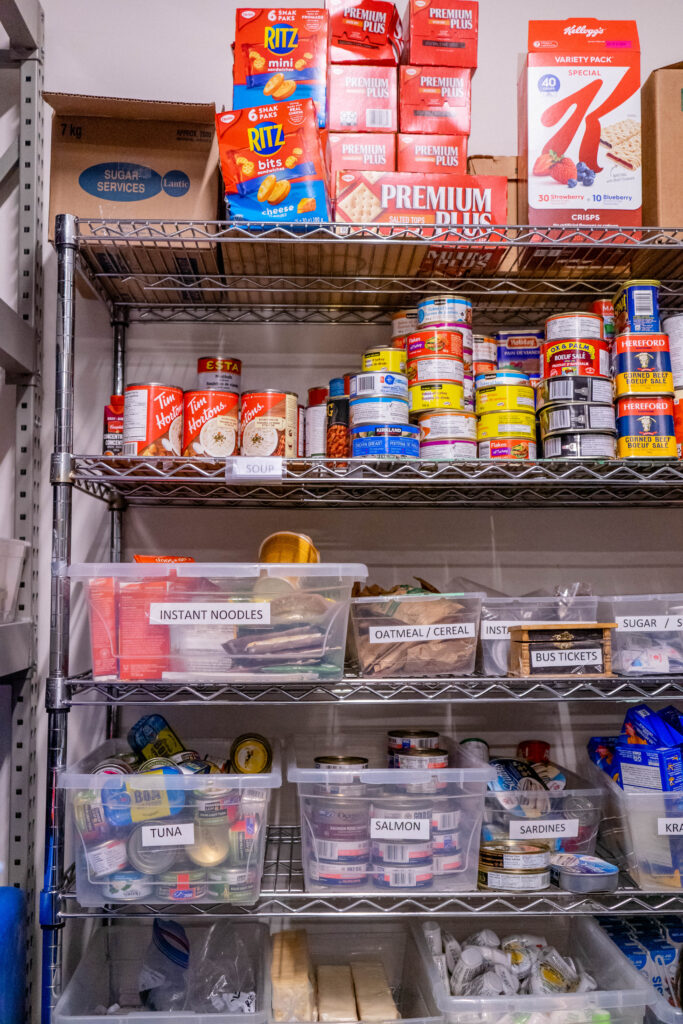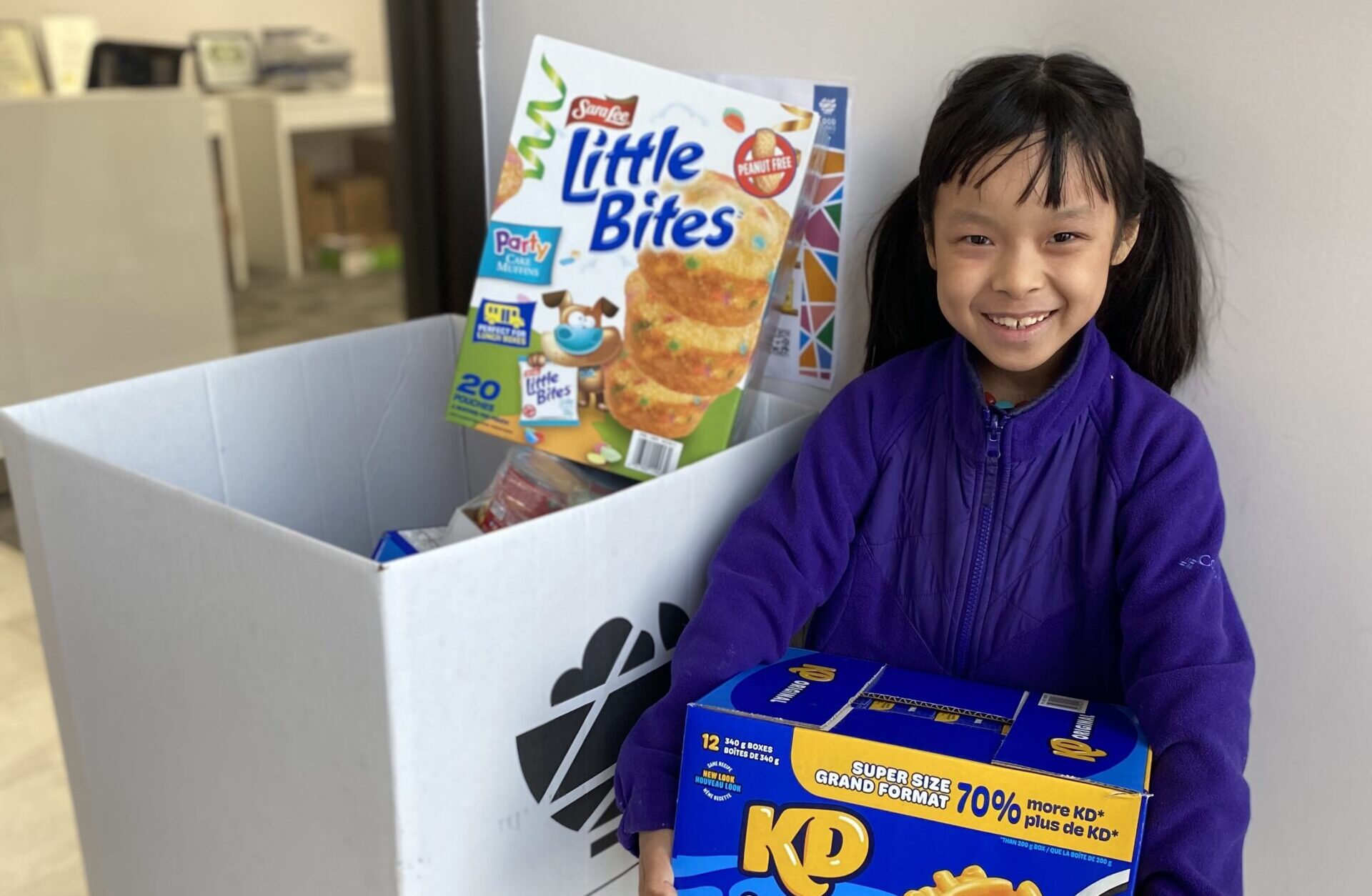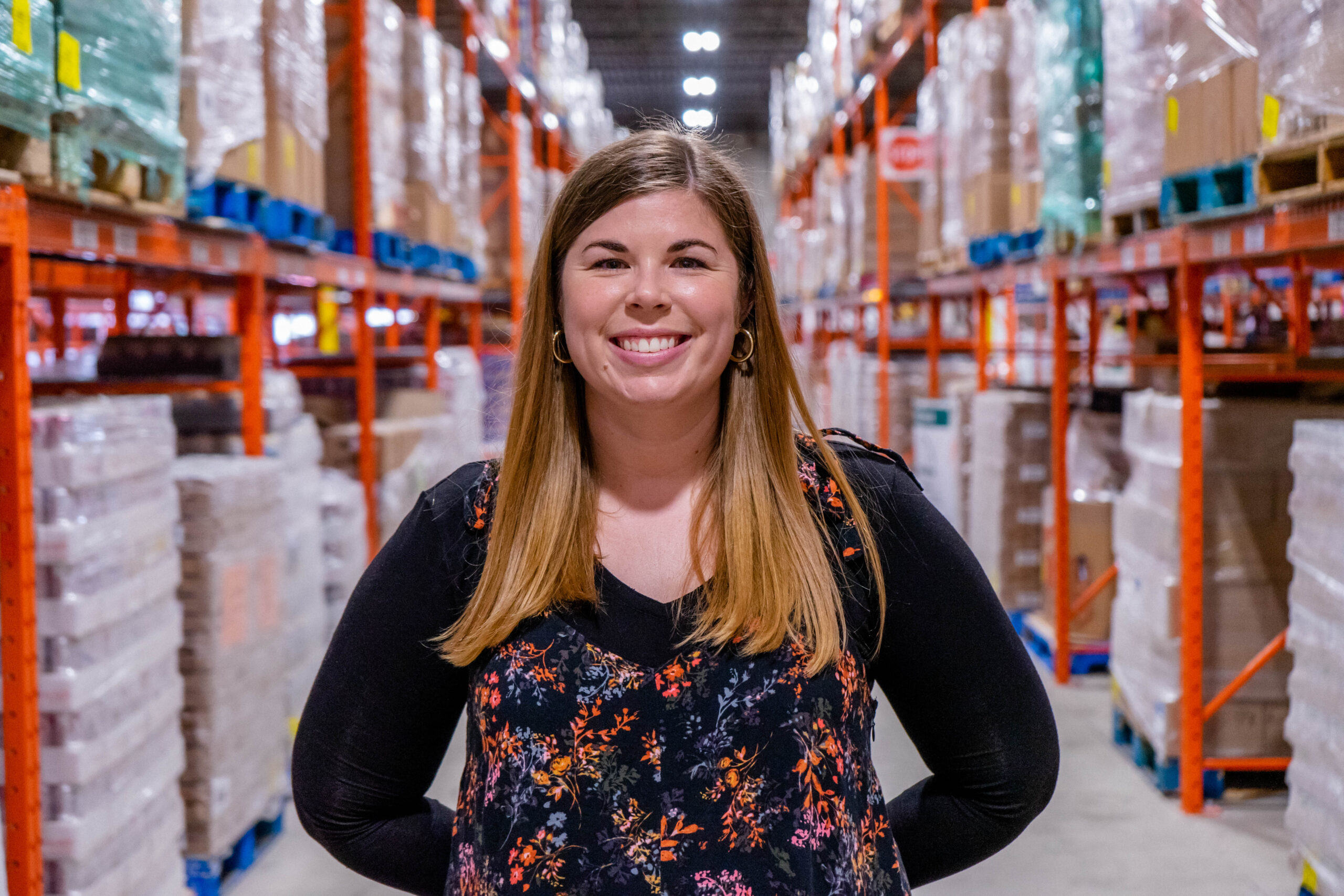“Positive things come out of the darkness. After the darkness, there is always light.”
This week (May 6 – 12, 2024) is CMHA Mental Health Week. According to Food Banks Canada, food bankers repeatedly identified and emphasized the mental health challenges of their clients, supporting evidence that poor mental health is significantly correlated with food insecurity. Food Bank Canada’s 2023 HungerCount report states that 60% of folks accessing food banks in Canada say that their mental health is an issue and is not receiving the attention it deserves.
In light of how mental health correlates to folks accessing food banks, we want to highlight a client that we spoke to last year at The Compass, one of the 65+ agency members in our Mississauga network.
(TW: depression, thoughts of suicide)
John, as he requested to go by to protect his identity, was experiencing homelessness when we talked to him last year. He had temporary shelter through a program called Safe Beds but told us that he had stayed previously at hotels, motels, shelters, the bus, and the gym. “I did have a beautiful home, but not anymore.”
“I was getting over one thing and then something else would happen.”
John worked for a medical device company for 32 years. He described his life as “comfortable” – he provided for his family and made “astute, prudent financial decisions”, paying off his house, purchasing another, saving money in his ‘nest egg.’ His career was demanding, and he loved it.
But in 2009, John’s mental health began to suffer:
“I was isolating myself more. I’ve always been a glass half full type of person. And I just found I was getting very sad. ‘Like, why am I sad?’ It was just like … just sad all the time. I’m like, you know what? I’ll go on a vacation. I’ll do this, or I’ll do that and then that’ll help. But then, I noticed that something was seriously wrong. Because 2012 came around and I’m in this – one of the best summers ever. And I’m like, “this is not good.” It’s like the most beautiful day. I’m with my family. You know, I have no problems. All the boxes are checked. Why am I feeling this?”
Then came some difficult events in his family: a breakdown of his marriage, the passing of his mother, a poor health diagnosis for his father and a difficult decision to put him in a home. “A lot of events happened. It was almost like one after the other. It was like it was almost like I was getting over one thing and then something else would happen.”
With the stress of all these events, something was triggered in John. “I got extremely ill, like extremely, really like very sick like to the point where I couldn’t function. I went into work and I’m like, ‘my God, how come anybody doesn’t see what’s happening?’ How am I even walking around right now? I was falling apart, you know, because when you have a broken arm or a broken leg or a scar, people can see it, and the thing is, you know what? When it’s here-“ John points to head. “People don’t see it.”
“It’s like a dark curtain.”
“I don’t wish this on anybody. It was the worst thing that happened to me. At one point I literally, I just wanted to sleep and not wake up.” John continues, “The pain is so intense. It’s so intense and that the mental anguish is so, so much.”
“I’m literally imploring, begging to sleep. And every little thing, every noise would be augmented, like everything would be heightened and I was having these like horrible, horrible night terrors and night visions. And it was panic attacks. And I’ve always been a very confident man – my self esteem went like…it was just the most horrible thing. I was just going like ‘I gotta shave’ and then this voice would say like “Why? You’re just old. You’re gonna die soon. Why do that?” You know, ‘I gotta get a haircut.’ “Why? You’re gonna die. Your best years are behind you, you’re done. That’s it.”
“When you’re in like the deepest, deepest depression, the deepest of it – you don’t see a way out. It’s like this dark curtain. You can’t see. Literally, you can’t see. You’re blinded. You can’t see. You don’t see anything, you don’t see the light. And thank God, for me, the light was my daughter actually. I don’t think – I wouldn’t be here if it wasn’t for my daughter.” John takes a long pause, choking up. He continues, “I wouldn’t be able to navigate it. It’s interesting because like – she’ll never know what she did for me. My daughter essentially saved my life.”
“In the darkest, darkest moment – she was my lighthouse. As a father, it makes me very proud that I contributed this human being to this world that’s gonna add nothing but positivity. That’s my reason to keep going, she’s just drives me.”
John was hesitant to seek professional help, but then he thought: “if I don’t feel well – if my heart wasn’t responding, or you know I didn’t feel good, I would see a doctor. Then it’s the same thing.” John decided to see someone to be assessed and from there, “I connected with a wonderful, wonderful medical resource.”
“This is what a homeless person looks like.”
Although John was now receiving the much-needed medical help, he was off work on disability. He received a portion of his salary during this time, but it wasn’t enough to keep up with his existing payments and bills.
“I mean my car payments are still the same, the insurance is still the same, you know like everything… electricity is still the same, that never changes, right? So I ended up… I went through my savings. I used my nest egg and my savings just to kind of keep afloat… It’s almost like you’re running in place, like you’re going nowhere fast.”
In the spring of 2022, John lost his house.
“I never thought it would be – homelessness. I’m like, ‘Oh my God, I’m literally homeless.’ This is what a homeless person looks like.”
While John was staying at a shelter, he was told about The Compass Food Bank & Outreach Centre.
“I love The Compass. It’s amazing.”
“The way the staff and volunteers speak with you – sorry I’m getting a little choked up – It’s amazing. Sometimes you just need somebody to, like, say “hey, you good today? You alright?” You know, it’s like that. Sort of like… a human connection… I can’t tell you how far that goes.”
John shared that he comes to The Compass every day. He visits the Market, a food bank initiative supported by Food Banks Mississauga. “I love the way they say it – it doesn’t demean anybody. Like, “oh, it’s a market”, “oh you’re shopping” – it’s just the way you present things. It just gives people dignity.”
As John does not currently have permanent housing, he is able access food from the No Fixed Address section: smaller amounts of food he can easily carry, power bars and ramen cups, canned food with pull-tops – food that doesn’t require a stove or refrigeration.
John shares that at The Compass, he has access to wifi, laundry services, showers, haircuts, a nurse, housing services – “I’ve connected here with a lady – she’s wonderful – so she’s finding me, it’s called supportive housing.”
John also receives warm meals during the day at The Compass. He shares how “phenomenal” the food is, and how little things like actual cups and metalware utensils mean so much to him. “The things that you take for granted – I’m not eating with like a fork that when I put it into it, it’s gonna like snap… you know? It’s like – it’s a huge thing. You almost like, you’re humanizing yourself again. You’re just kinda like – re-entering society again. You’re eating like a normal human being. It’s amazing.”
“Positive things come out of the darkness”
“I have something called the severe complex post-traumatic stress disorder. And unfortunately, it rides with its little compadres, known as depression and anxiety and they walk together and it’s horrible. But it’s something that I accepted after all this time, thanks to the doctors, that it’s something that – it’s never going to go away, and I have to live with it and manage it to the best of my ability. It’s always going to be with me. You just have to learn how to navigate the world with it.
When I was at the worst of my depression, I was just in so much pain and I sat up and I was like ‘God, when is this pain going to end? Like, is this ever going to end?’ It was excruciating, like heart wrenching pain. And to me it felt like it would never end. But, you know, slowly, slowly, you know, it went away. You know, it’s like the darkness kinda – it’s almost like it takes all my energy, all my mind, to kind of keep like this little forcefield around me, to just keep the darkness out – to stay in like, a positive, you know, and a serene state of mind.”
John credits the wonderful people and resources at The Compass for allowing him to keep a positive state of mind. “This place has been like an absolute blessing. They’ve been like absolutely stellar human beings with me, they’ve been kind, I have nothing but great things to say about this place.”
“You know, after the darkness, there is always light.”
If you need urgent support with your mental health, you can contact the Ontario Mental Health Helpline for free, confidential information on programs and services in your area at www.mentalhealthhelpline.ca or by calling them on their 24/7 telephone line at 1-866-531-2600.
Provide food support to your neighbours through our network of 65+ agency members!
Your donations mean we can provide our agency members with more than just food and personal care items, but also support and funding to help them better serve your neighbours facing food insecurity. Donate today!

